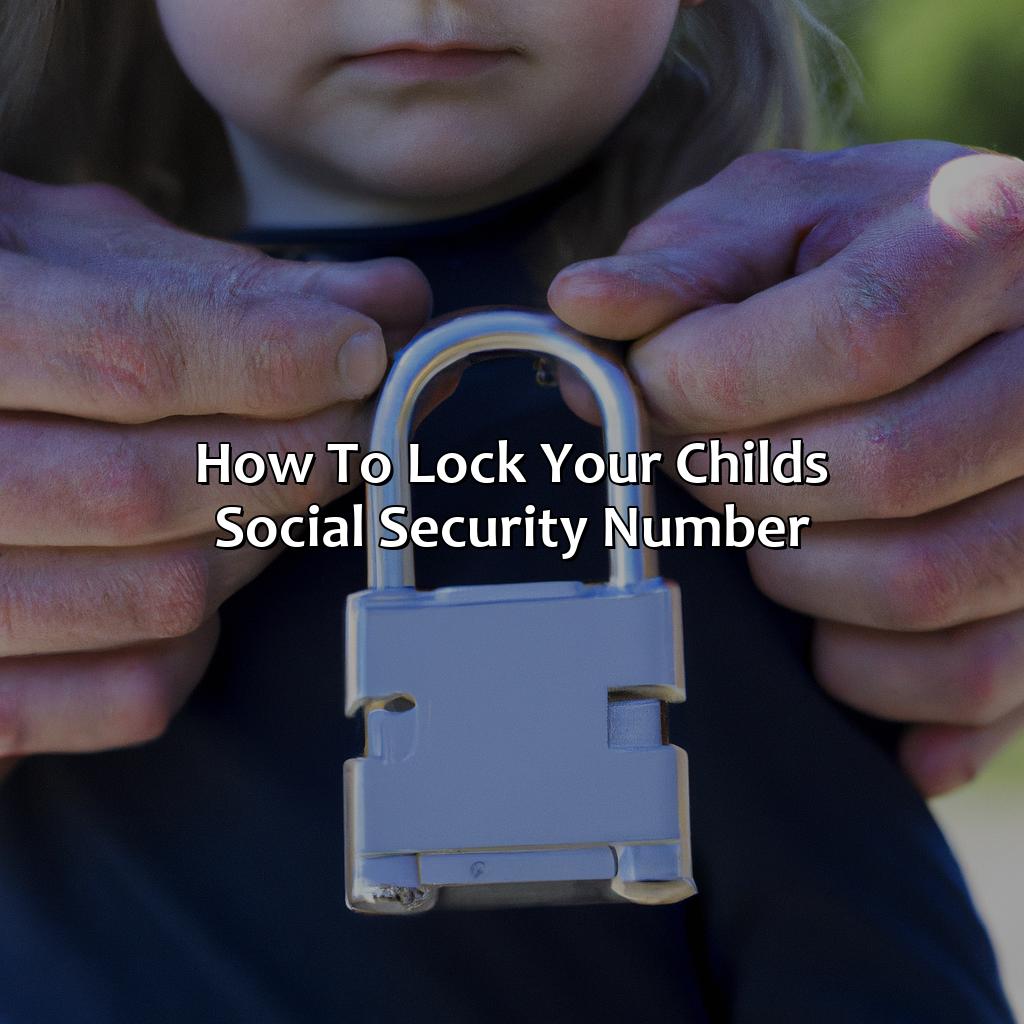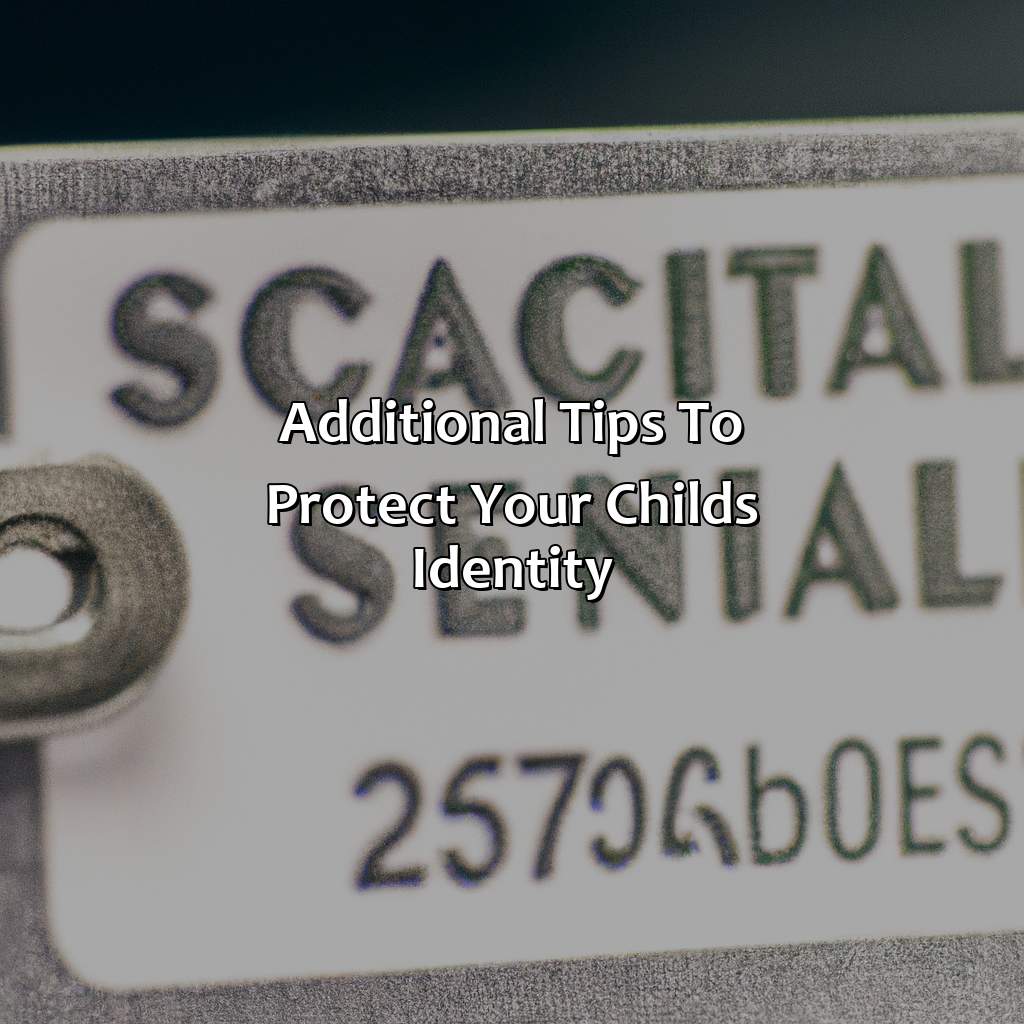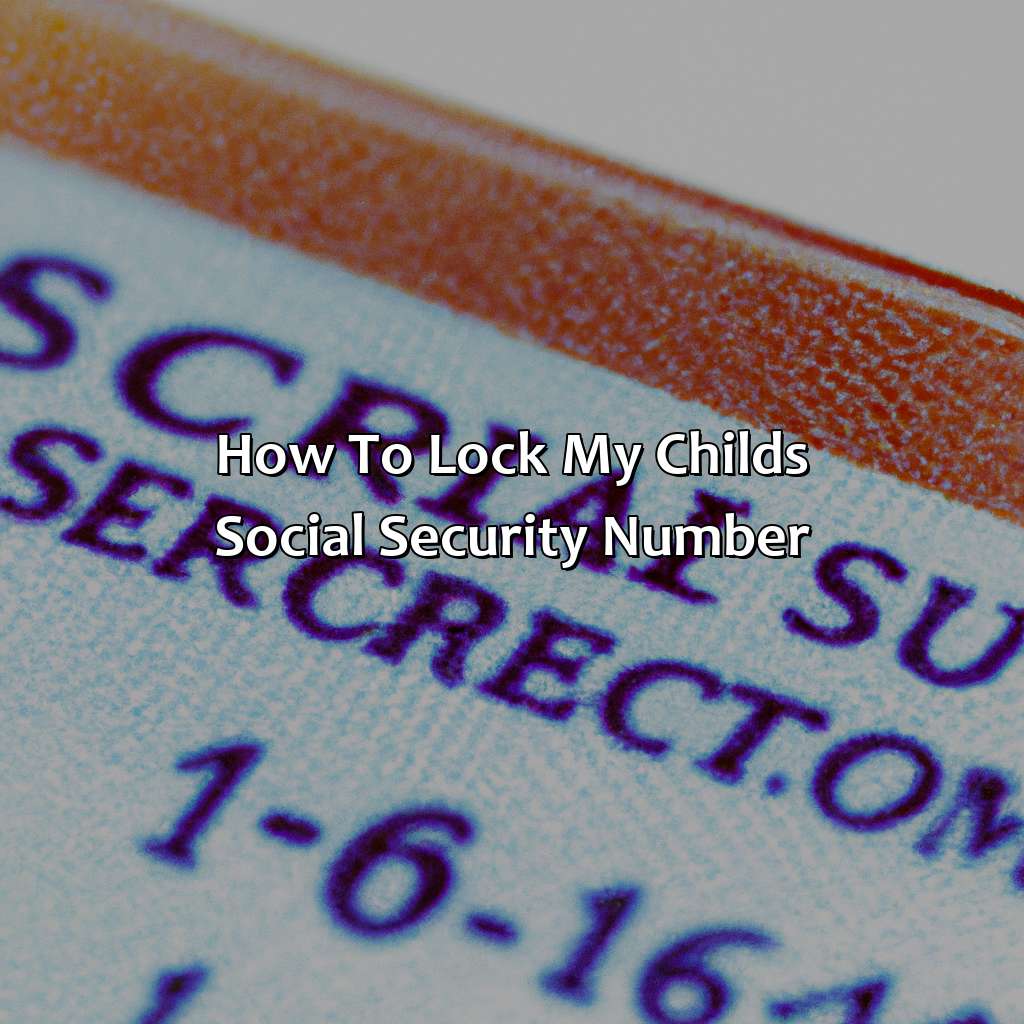How To Lock My Child’S Social Security Number?
Key Takeaway:
- It is important to lock your child’s social security number to prevent identity theft: Children are a prime target for identity theft, as their social security numbers are unused and can go unnoticed for years. By locking your child’s social security number, you can prevent unauthorized access to their credit history, preventing fraud and damage to their credit score.
- Contact credit bureaus to place a security freeze on your child’s social security number: A security freeze prevents access to your child’s credit report, making it difficult for identity thieves to open new accounts or lines of credit in their name. You can contact the three major credit bureaus — Experian, Transunion, and Equifax — to place a security freeze on your child’s social security number.
- Other strategies to protect your child’s identity include registering for a credit report for your child to monitor for suspicious activity, utilizing identity monitoring services to receive real-time alerts for any unusual credit activity, and being cautious about sharing personal information about your child on social media or other public platforms.
Worried about the risks of identity theft for your child? You can protect your child’s identity by locking their social security number. This article provides important tips and resources on how to secure your child’s SSN.
Why is it important to lock your child’s social security number?
It is crucial to safeguard your child’s social security number to prevent identity theft and financial fraud. By locking the social security number, it ensures that unauthorized people do not access your child’s sensitive information, such as credit reports and bank accounts. This helps to avoid damage to the child’s creditworthiness and protect them from various cyber crimes.
To prevent any unauthorized access, parents can lock their child’s social security number by placing a credit freeze or using specialized identity theft protection services. This can be a valuable investment, especially with the increasing prevalence of identity theft and cyber crimes. By monitoring your child’s credit reports and financial activities, it assures you that they are not victims of fraud.
Moreover, parents can also teach their children about online safety and the importance of keeping personal information private. This can include not sharing sensitive information like social security numbers on social media platforms or with unfamiliar people. It is vital to establish good online habits from an early age.
Pro Tip: It is recommended to check your child’s credit report at least once a year to ensure there are no signs of fraudulent activity.

Image credits: retiregenz.com by Yuval Duncun
How to lock your child’s social security number
Protecting your child’s social security number is crucial in today’s digital age. Here’s a concise solution to secure the sensitive information of your offspring.
- Obtain A Credit Freeze: Contact the credit bureaus and initiate a credit freeze for the child.
- Request Credit Monitoring Services: Monitor your child’s credit reports for any suspicious activities.
- Keep records of the Documents: Safeguard your child’s important documents, including their social security card.
- Be Vigilant with Social Media: Restrict online disclosures of personal information.
- Limit Data Sharing: Refrain from sharing your child’s personal information without verifying the legitimacy of the requests.
- Instill Cyber Awareness: Instruct your child to adopt best practices when using digital devices and to refrain from clicking unknown links.
Furthermore, it is essential to remember that the Social Security Administration does not endorse the credit freeze application for minors. Nevertheless, credit bureaus might ask for documented proof for the minor child’s identity and as a legal guardian, you must provide that for the application to proceed.
Did you know that in 2017, there were 1.3 million identity fraud incidents reported for minors in the USA? (Source: Javelin Strategy & Research).

Image credits: retiregenz.com by Joel Duncun
Additional tips to protect your child’s identity
Safeguarding your child’s identity is a crucial task that requires additional tips to augment protection measures. Here we enlist some essential strategies to ensure that your child’s identity is safeguarded in a more secure way.
- Securely keep your child’s social security card, and only provide it to trusted parties
- Monitor your child’s credit reports regularly
- Teach your child to protect personal information such as name, date of birth, and Social security number
- Do not share your child’s personal information on social media platforms
- Consider freezing your child’s credit reports until necessary
Make sure to educate your child regarding the importance of personal information and how to use it safely. Additionally, closely monitor your child’s online activity, as their identity can be used maliciously even before they reach their teenage years.
Pro Tip: In case of a breach or suspected misuse of your child’s identity, notify credit bureaus instantly to take appropriate action and thwart any further fraudulent activities.

Image credits: retiregenz.com by Yuval Washington
Some Facts About How to Lock Your Child’s Social Security Number:
You can lock your child’s social security number through a credit freeze with each of the three major credit bureaus. (Source: FTC)
A credit freeze prevents creditors from accessing your child’s credit report without the parent’s consent. (Source: Experian)
Parents need to provide proof of their own identity and their child’s identity to initiate a credit freeze. (Source: Equifax)
A credit freeze is free for victims of identity theft and usually incurs a small fee for non-victims. (Source: TransUnion)
Parents should also monitor their child’s credit report regularly to detect any unauthorized activity. (Source: Consumer Financial Protection Bureau)
FAQs about How To Lock My Child’S Social Security Number?
1. How can I lock my child’s social security number?
It is important to protect your child’s social security number to prevent identity theft. You can lock your child’s social security number by placing a credit freeze on their credit report with the three major credit bureaus. This will prevent anyone from opening credit accounts or loans in your child’s name.
2. Can I lock my child’s social security number if they don’t have a credit history yet?
Yes, you can still lock your child’s social security number even if they don’t have a credit history. It’s better to take preventive action early on, as identity theft can happen at any age. The credit bureaus can create a credit file with your child’s social security number for the purpose of freezing it.
3. Is there a cost to lock my child’s social security number?
It is free to place a credit freeze on your child’s social security number. However, if you want to temporarily lift the freeze to allow access to your child’s credit report (for example, if they are applying for student loans), there may be a fee involved.
4. Will locking my child’s social security number affect their ability to apply for credit in the future?
No, locking your child’s social security number will not affect their ability to apply for credit in the future. You can temporarily lift the freeze when they are ready to apply for credit and then reinstate the freeze after the applications have been processed.
5. How do I remove the credit freeze from my child’s social security number?
You can remove the credit freeze from your child’s social security number by contacting each of the three major credit bureaus and providing proper identification. The process may take a few days to complete.
6. Can I lock my own social security number too?
Yes, you can also place a credit freeze on your own social security number to protect against identity theft. It is recommended to do so if you have been a victim of identity theft in the past or if you are concerned about the security of your personal information.
 Checkout this IRS Loophole
Checkout this IRS Loophole 
